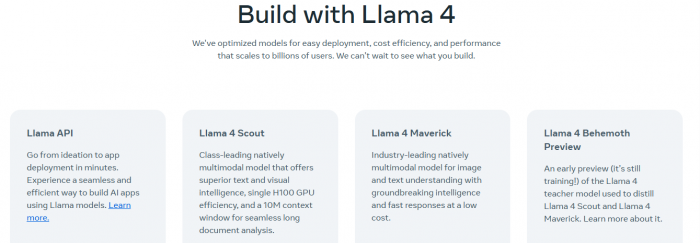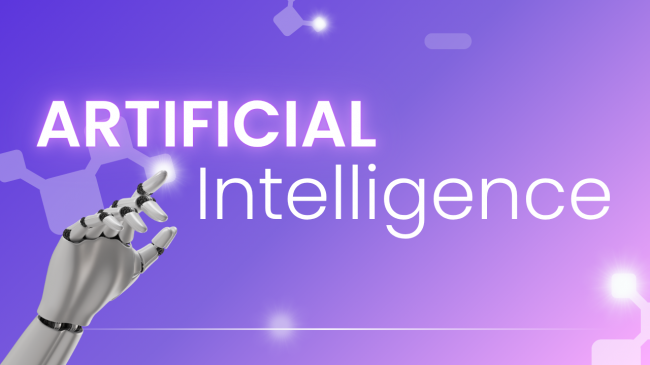On This Page
- Meta's AI Strategy: A Fork in the Road
- Inside Meta's Superintelligence Lab
- From Cloud to Concrete: Meta’s Hardware Play
- Follow the Money: Capital and Talent Spending
- The War for AI Talent Gets Personal
- Meta’s AI Models in Practice: What’s Public, What’s Not
- The Ecological Cost of AI Ambition
- Regulatory and Ethical Implications
- What Happens to Open-Source AI if Meta Pulls Back?
- Investor Reactions and Market Signals
- The Bigger Picture: Where Meta Stands in the AGI Race
As Meta pours billions into superintelligence labs and 5GW data centers, insiders reveal growing internal pressure to move away from open-source AI models in favor of more closed, controlled releases.
Meta has halted the public release of a powerful new version of its Llama 4 model—internally referred to as "Behemoth"—as internal leadership debates whether the company’s open-source AI philosophy can withstand rising competitive and safety pressures.

According to reports from TechCrunch and The New York Times, the company’s Superintelligence Lab has shelved plans to open the 2-trillion-parameter model, even as it ramps up spending on infrastructure and talent to compete in the global AI arms race. While CEO Mark Zuckerberg recently reaffirmed Meta’s long-term investment in AI—highlighting a $5 billion data center project in Louisiana and a $72 billion capital expenditure forecast—senior engineers and policy teams are reportedly reconsidering how open Meta’s next wave of models should be.
Meta's AI Strategy: A Fork in the Road
Meta’s long-standing commitment to open-source AI may be evolving. According to TechCrunch, internal debates have emerged within the company’s Superintelligence Lab over whether to fully release the new Llama 4 variant—nicknamed "Behemoth"—which boasts 2 trillion parameters. While Meta has previously released open-weight models like Llama 2 and 3, the scale and power of Behemoth raise concerns around safety, competition, and control.
The delay reflects deeper tensions: some executives advocate transparency and research collaboration, while others fear giving away key IP as the AI arms race intensifies. The internal consensus seems to be shifting toward selective openness—offering smaller or older models to the public while keeping the frontier models proprietary.
Inside Meta's Superintelligence Lab
The Superintelligence Lab is Meta’s moonshot team, tasked with building systems that go beyond LLMs. Led by Joelle Pineau, the lab’s mandate includes developing multi-modal AI systems that can reason, plan, and even demonstrate forms of common sense. The ultimate goal, according to internal memos reported by NYT, is to reach AGI capabilities within the next five to seven years.
Key figures include Alexis Black Bjorlin, who leads infrastructure, and former top minds from OpenAI, Google DeepMind, and Apple. The lab has drawn comparisons to DeepMind’s AlphaFold and xAI’s real-time inference stack—but with a Meta-sized budget.
From Cloud to Concrete: Meta’s Hardware Play
Zuckerberg recently announced two massive AI data centers: Prometheus and Hyperion.
- Prometheus: A 1GW supercluster in New Albany, Ohio, set to go live in 2026.
- Hyperion: A proposed 5GW campus in Louisiana, expected to be one of the largest AI-focused facilities in the world.
To put it in perspective, 5GW is enough to power several million homes. These superclusters will form the physical backbone of Meta’s AGI vision—offering compute capacity that rivals national grids.
Follow the Money: Capital and Talent Spending
Meta is doubling its capital expenditures this year, planning to invest between $64 billion and $72 billion, with AI as the primary driver. In addition, the company made a $14.3 billion strategic investment in Scale AI, securing talent, data infrastructure, and labeling tools critical for model training.
Analysts believe Meta's AI push could burn over $200 billion in the next decade. According to company insiders, the investment is considered foundational—not optional.
The War for AI Talent Gets Personal
Meta is aggressively courting talent, with compensation packages exceeding $100 million for top researchers.
High-profile recruits include:
- Nat Friedman (ex-GitHub)
- Alexandr Wang (Scale AI)
- Daniel Gross (Safe Superintelligence)
This strategy not only bolsters Meta’s capabilities but also drains competitors like OpenAI and Apple of senior AI leadership.
Meta’s AI Models in Practice: What’s Public, What’s Not
Llama 3 was released in open-weight form, earning praise for its performance and reproducibility. However, the internal debate around Behemoth suggests a pivot. Meta may now restrict top-tier models, offering only mid-sized variants to researchers and developers.
This hybrid release model aims to maintain goodwill in the open-source community while securing strategic advantages.
The Ecological Cost of AI Ambition
Building multi-GW data centers raises sustainability concerns. In Newton County, Georgia, Meta’s earlier facility strained water supplies and led to higher rates for residents. Critics warn the Louisiana Hyperion campus could cause similar environmental pressures.
Meta has pledged to use renewable energy and implement water recycling, but local groups remain skeptical.
Regulatory and Ethical Implications
As Meta shifts toward closed models and builds powerful infrastructures, regulatory questions are mounting. The EU AI Act may require additional disclosures for frontier models, and U.S. agencies have begun asking about the national security implications of centralized compute power.
Ethical concerns also surround AGI development: who decides safety standards, and what guardrails should exist for systems with general reasoning capabilities?
What Happens to Open-Source AI if Meta Pulls Back?
If Meta withdraws from open sourcing its most powerful models, it could leave a vacuum. Organizations like Hugging Face, Mistral, and Cohere may step in—but none match Meta’s compute and scale.
A retreat could slow academic progress, limit startups’ access to competitive models, and fragment the AI ecosystem.
Investor Reactions and Market Signals
Despite the capital outlay, Meta’s stock rose following Zuckerberg’s announcements. Investors appear confident in the long-term upside of AI infrastructure, though some analysts warned of margin pressure in the near term.
Meta’s boldness is seen as a hedge against stagnation in its core business and a response to competitors' closed strategies.
The Bigger Picture: Where Meta Stands in the AGI Race
With OpenAI’s GPT-5 on the horizon and Google DeepMind pursuing Gemini Ultra, Meta’s path is clear: control the stack from silicon to software.
If successful, Meta won’t just be a social media company with AI—it could be a core builder of artificial general intelligence infrastructure, influencing not just the internet, but intelligence itself.
This shift—from open releases to selective disclosure, from cloud spend to hardware domination—is Meta betting the house on being first. Whether it wins or not, the race just got a lot more real.
Post Comment
Be the first to post comment!





